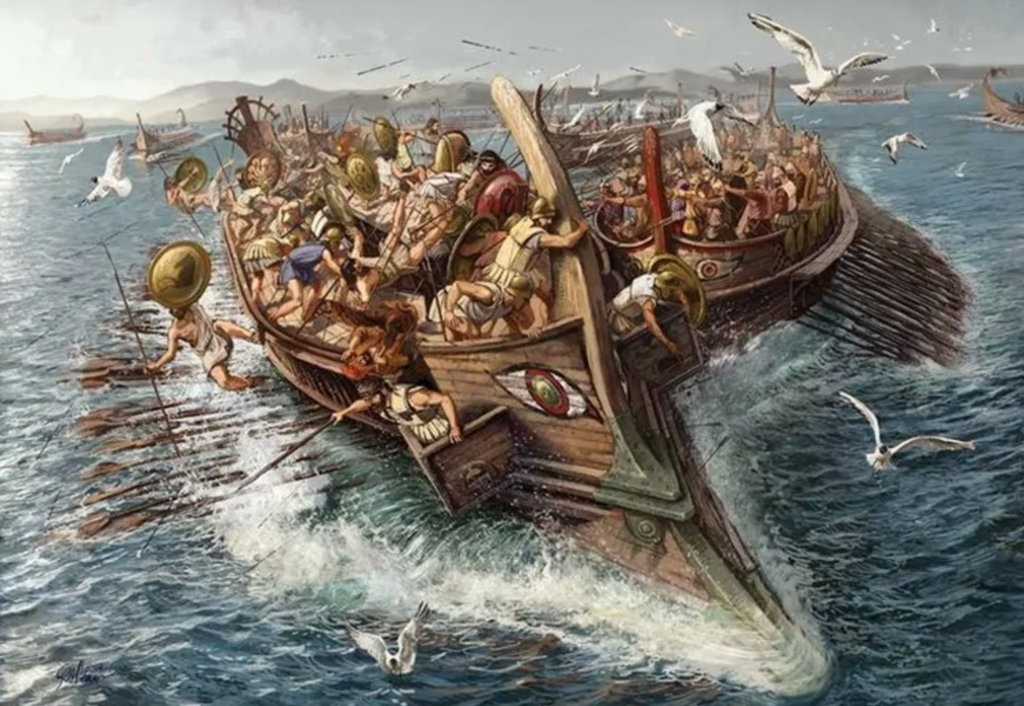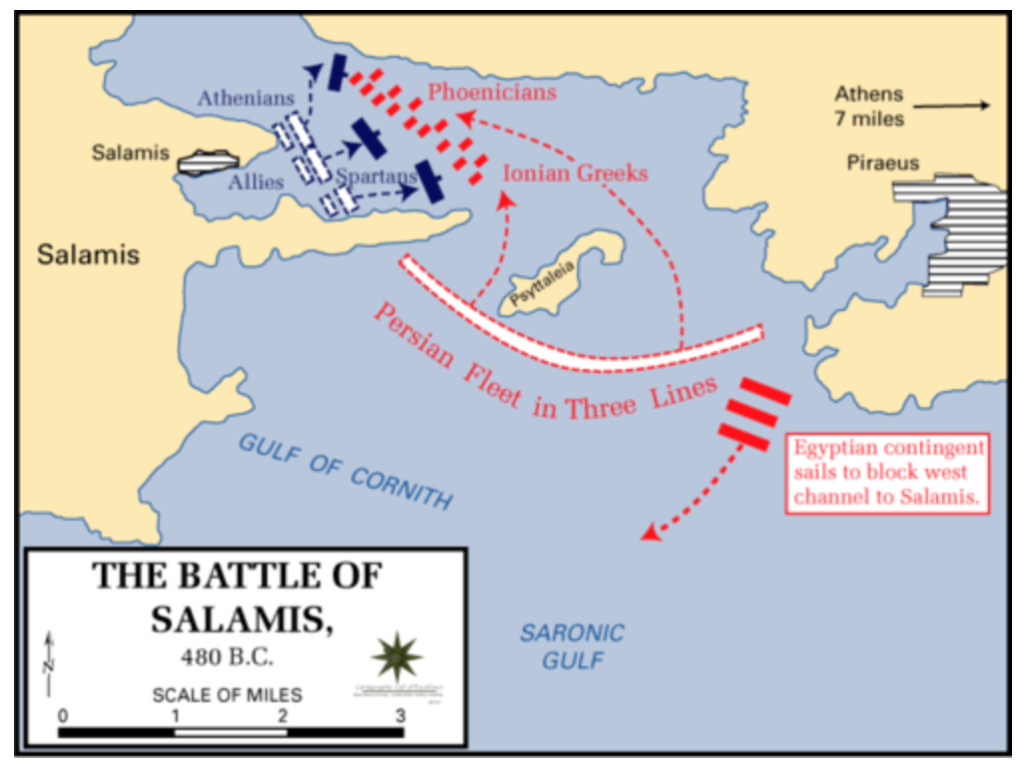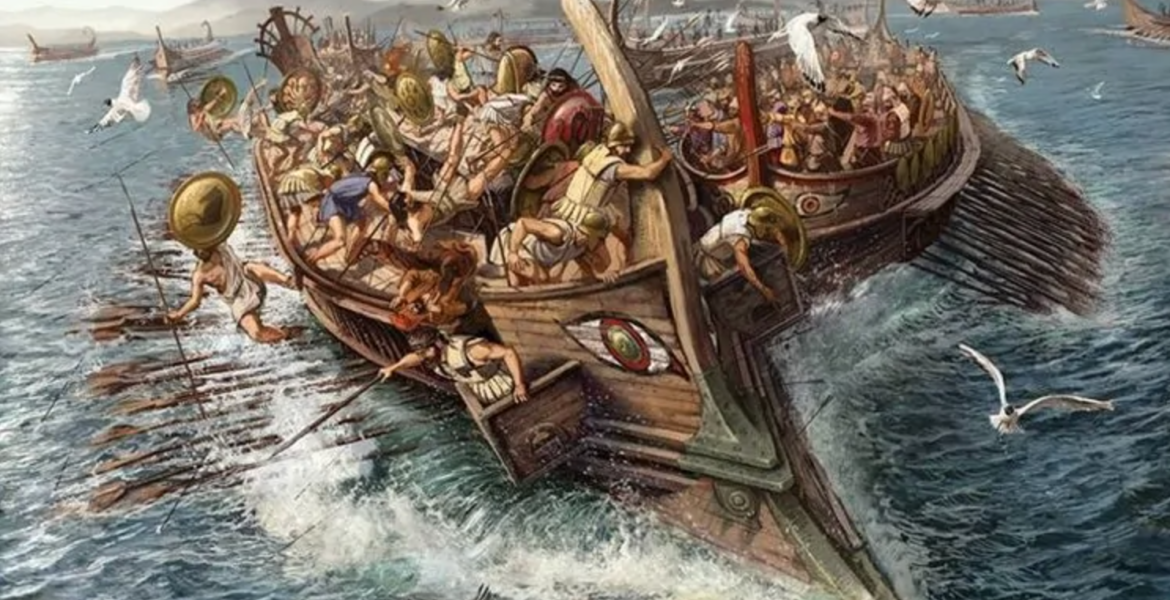
The Battle of Salamis was one of the final battles in the second war between the Persian Empire led by King Xerxes and an alliance of Greek city-states.
Salamis is an island off the coast of mainland Greece.
The Battle of Salamis was a great victory for the Greek navy and, in combination with a victory by the Greek army at the Battle of Plataea the next year, led to the complete defeat of the Persians.
In this battle, a Greek fleet defeated much larger Persian naval forces in the straits at Salamis, between the island of Salamis and the Athenian port-city of Piraeus.
By 480 the Persian King Xerxes and his army had overrun much of Greece, and his navy of about 800 galleys bottled up the smaller Greek fleet of about 370 triremes in the Saronic Gulf.

The Greek commander, Themistocles, then lured the Persian fleet into the narrow waters of the strait at Salamis, where the massed Persian ships had difficulty maneuvering. The Greek triremes then attacked furiously, ramming or sinking many Persian vessels and boarding others.
The Greeks sank about 300 Persian vessels while losing only about 40 of their own.
The rest of the Persian fleet was scattered, and as a result, Xerxes had to postpone his planned land offensives for a year, a delay that gave the Greek city-states time to unite against him.
It was a clear victory for the Greeks and the Persian attempt to conqueror the Peloponnese failed.
The Battle of Salamis was the first great naval battle recorded in history, with the Greeks winning one of the largest naval battles in history while Xerxes suffered a disastrous defeat.
Archaeologists discover 2,500-year-old Battle of Salamis site

